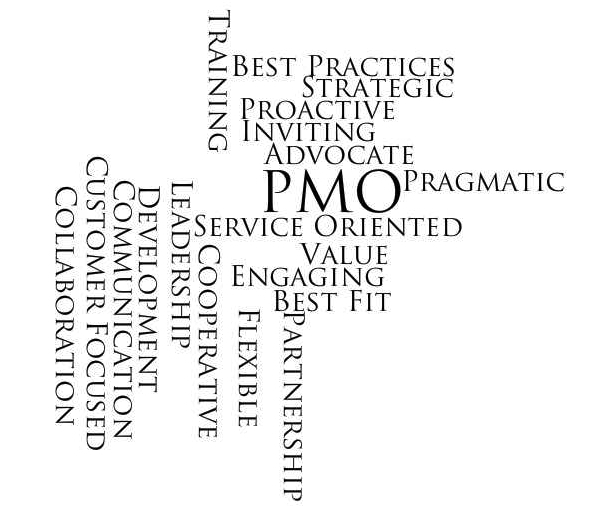
I was at an industry event this past week, spending time with executives across large and small insurance carriers. We were there to talk about the business of insurance and how technology plays a key role in that business. As a result, the executives crossed a variety of business and technical roles. A VP of Claims, a CIO, and maybe a Senior Director of Strategy all at the same table. And in the middle of it all was me…the only PMO-type in the room.
The Process Police
It didn’t occur to me that I was the only one until a workshop on improving team results. There was a great discussion about changes leaders could implement with their teams that the speaker was recommending to the group. The individuals in the room were very receptive and there was a lot of dialog and interaction about the topic. One individual spoke up about challenges he could see with implementing these changes in his current environment.
“What you’re suggesting sounds great, but our PMO already has process and templates defined to the nth degree. They aren’t going to be open to a change, so my people will have to perform duplicate activities.”
A gentleman across the room chimed in while I listened intently.
“You just need to tell your PMO, like I do, this is going to make the business better. So you need to say this is okay for us to do or I’m going to the VP and he’ll tell you this is what we’re going to do.”
At this point, most of the room was nodding while I smiled broadly and raised my hand.
“I’m not positive, but I’m pretty sure I’m the only person in the room where the PMO function IS my job. I’d like to share my perspective with you. If a team came to me with improvement opportunities, I’d be all ears. I want to know what best practices are out there, so that I can bring them to other teams to help them improve. As a PMO, that’s how my team adds value, not through governance, process and templates. From where I’m sitting, you have two choices. Ask your PMO to work with you to make the organization better OR get yourself a new PMO.”

Frustration and Covert Operations
Though my primary skill set is building and rebuilding PMO’s, I have also spent a number of years as a customer of PMO’s. Those years were filled with frustration and covert operations. The best practices that I sought to implement on my teams, necessary to deliver value, meet budget and schedule commitments, and generally get the job done, were “not the way we do things.” So, I did them anyway and figured that as long as I was successful and met the spirit or intent of a process, then I was okay. Since I delivered, I was left alone. But is that the most I should expect of a PMO? Of course not.
I was recently asked to build a PMO for a new business unit. In a way, I’m the best and worst person to take on the task. Why? Because not only do I have the background to build out the primary capabilities of a PMO, I know exactly how and why to avoid, discount and ignore them.
If my team focuses entirely on rigid processes and templates, sending out nasty-grams about missed governance deadlines, then we will have failed. We will be exactly the kind of organization that I have sought to avoid for years. Instead, the focus needs to be on adding value, taking the best of what teams are doing and sharing that knowledge across the organization, and providing best-fit guidance on things like process and templates.
This is not your Grandma’s PMO
I tell my customers, when they hear I’m building the PMO and they get that sour look on their face, that “this is not your grandma’s PMO.” I usually get a chuckle and a few minutes to share why I think this organization will be different. I believe we can and should expect more of our PMO’s.
It is only through partnership with the PMO that teams can share the great work they are doing across an organization, and get help when things are not going so well. It is only through partnership with its customers that PMO’s can improve the way a company delivers projects and be respected contributors to an organization.
Partnership and a focus on adding value is the path to PMO’s being engaged for guidance and assistance – their true reason d’être. Otherwise, frustration and covert operations will reign supreme. Last I checked, the Program Management Office acronym is PMO, not CIA.
Do you have a PMO that adds value in your organization? What are they doing for you and with you that you value? If not, what do you wish they were doing to help? I’d love for you to share your feedback in the comments.








